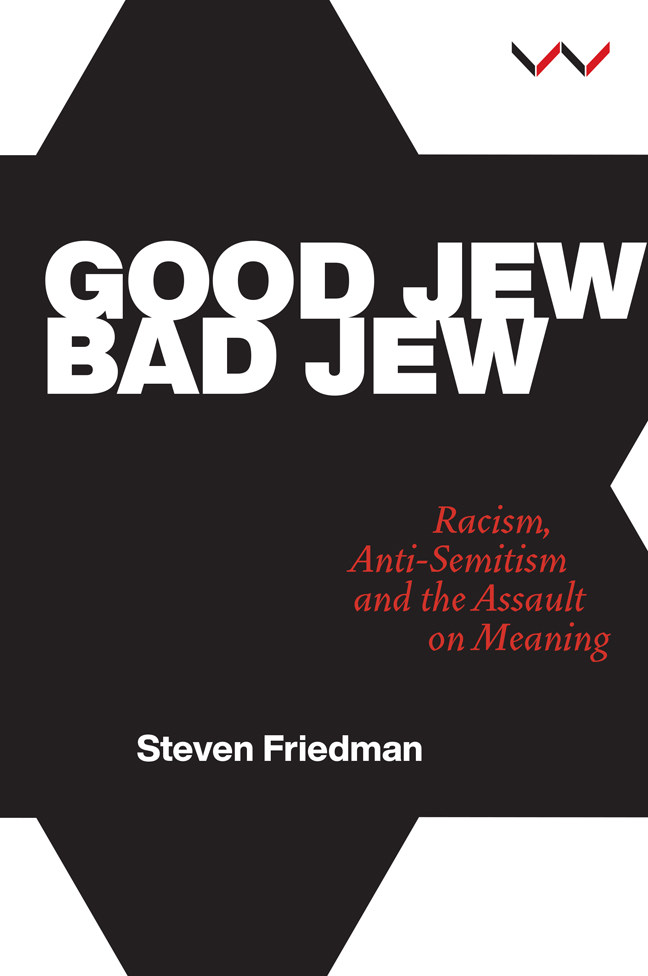Book contents
- Frontmatter
- Contents
- Acknowledgements
- Introduction: The Tenacity of Race Bias
- Chapter 1 Turning Anti-Semitism on its Head
- Chapter 2 Making ‘Good Jews’ White and European
- Chapter 3 What Anti-Semitism Really Is
- Chapter 4 The Israeli State as a ‘Cure’ for Anti-Racism
- Chapter 5 Zionism as an Escape from Jewishness
- Chapter 6 Mimicking the Oppressor
- Chapter 7 Two Religions and the Nightmare the West Created
- Chapter 8 Colonising Anti-Racism
- Conclusion: The ‘New Anti-Semitism’ and Politics Today
- Notes
- Bibliography
- Index
Chapter 6 - Mimicking the Oppressor
Published online by Cambridge University Press: 02 March 2024
- Frontmatter
- Contents
- Acknowledgements
- Introduction: The Tenacity of Race Bias
- Chapter 1 Turning Anti-Semitism on its Head
- Chapter 2 Making ‘Good Jews’ White and European
- Chapter 3 What Anti-Semitism Really Is
- Chapter 4 The Israeli State as a ‘Cure’ for Anti-Racism
- Chapter 5 Zionism as an Escape from Jewishness
- Chapter 6 Mimicking the Oppressor
- Chapter 7 Two Religions and the Nightmare the West Created
- Chapter 8 Colonising Anti-Racism
- Conclusion: The ‘New Anti-Semitism’ and Politics Today
- Notes
- Bibliography
- Index
Summary
For Zionism’s founders, establishing a Jewish nation state was the way to become European. Ironically, this quest for a state serving one group only in territory inhabited by others has found its parallel in a place far from Europe – India.
PASSING FOR NON-JEWISH?
As chapter 5 shows, Freud, Herzl and their fellow European Zionists initially saw assimilation, blending into European society, as their way out of the new Jewish ghetto.
But as Herzl’s play The New Ghetto shows, they felt that they were constantly rebuffed. Jacob Samuel, the play’s (Herzl-like) main character, is challenged to a duel but initially declines because he is busy with his dying father. He complains to a non-Jewish friend that, if the friend had backed out of a duel in this way, he would have seemed like a ‘solid clear-headed chap’. But if Jacob, a Jew, did so, it ‘makes [me] a coward’. Like Herzl, Jacob wants to fit in but feels unable to. This view was obviously hardened by the Dreyfus affair. After that case, Herzl, Freud and their fellow travellers did not abandon blending into European society (whether by mass conversion or by other means); rather, they tried to do it in a way that seemed most feasible. Founding a state seemed simpler and a better bet than hoping that European society would admit them. It was this which prompted them to become the first architects of what the Jewish theologian Marc Ellis has called ‘Constantinian Judaism’ – a religion (or form of ethnic identification) that centres on a state.
Why would a state enable Jews to become like everyone else? As Max Weber famously pointed out, states are not states unless they use force. He believed that states deserved that title only if they could ‘uphold a claim to the monopoly of the legitimate use of physical force’. And that is why states have armies and soldiers. They are manly and they enable Jews to become the heroic, duelling and fighting Europeans around them – not effeminate scholars. This entailed not a return to Jewish cultural roots, but the opposite. One consequence of the absence of statehood was that the dominant Jewish culture had developed an ethic which associated violence with non-Jews and so excluded such force from Jewish cultural expression.
- Type
- Chapter
- Information
- Good Jew, Bad JewRacism, Anti-Semitism and the Assault on Meaning, pp. 99 - 113Publisher: Wits University PressPrint publication year: 2023

